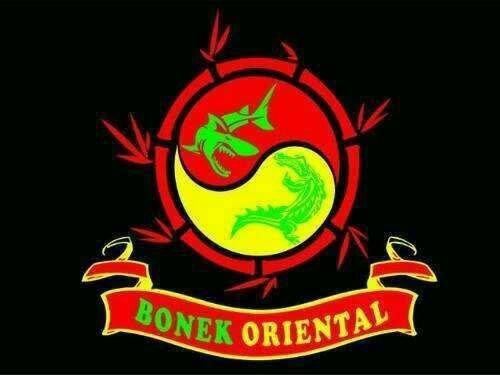Chinese Bonek: Reject Racism Through Symbolic Communication
Bonek Tionghoa: Menolak Rasisme Melalui Komunikasi Simbolik
DOI:
https://doi.org/10.21070/kanal.v9i1.686Keywords:
Chinese Bonek, Communication, Racism, PhenomenologyAbstract
This research starts from the phenomenon of the existence of Chinese Bonek (support- ers of the Persebaya Surabaya club who are of Chinese ethnicity) in the city of Surabaya. Although a minority in numbers (compared to Bonek ethnic or Javanese), the existence of Bonek Tionghoa began to be recognized among Bonek. Moreover, they also rou- tinely physically present at the stadium every time Persebaya competed. This study aims to unravel the experiences of the Chinese Bonek in supporting Persebaya, as well as understanding how they interpret that support. That experience is seen through verbal and non-verbal communication that they do, which of course implicitly has its own mean- ing and message. This research uses a qualitative approach, descriptive type, and uses the phenomenological method. Data obtained from in-depth interviews, supported by observation on the field (especially when Persebaya competed in the stadium). The find- ings of this research data show, Chinese Bonek apparently means that their support is not only as support for their favorite football club, but also as an expression of rejection of racism and discrimination that they often experience, both in daily life and in the context of the interaction of fellow supporters. The support is done through verbal communication such as singing (chant) and status or posting on social media, and through non-verbal communication such as direct attendance at the stadium, wearing a Persebaya jersey / costume, and certain gestures.
References
Ahmadi, D. (2008). Interaksi Simbolik: Suatu Pengantar. doi: 10.29313/mediator.v9i2.1115. https://dx.doi.org/10. 29313/mediator.v9i2.1115.
Alamsyah, M. I. and Prasetyo, I. J. (2019). Persebaya dan Bonek: Simbol-Simbol Komunikasi Supporter Sepakbola Komunitas “Syndicate Bonek Keputih (SBK)”. Communicatus: Jurnal Ilmu komunikasi 2, 203–216. doi: 10.15575/ cjik.v2i2.5032.
Ariyanto, A. (2017). Gender Construction of Women as Maung Geulis in Indonesian Football. Humaniora 8, 89–89. doi: 10.21512/humaniora.v8i1.3699.
Ayun, P. Q. (2015). Fenomena Remaja Menggunakan Media Sosial dalam Membentuk Identitas. CHANNEL Jurnal Komunikasi 3, 1–16. doi: 10.12928/channel.v3i2.3270.
Budyatna, M. and Ganiem, L. M. (2011). Teori Komunikasi Antarpribadi (Jakarta: Kencana).
Effendy, O. N. (2000). Ilmu, Teori dan Filsafat Komunikasi (Bandung: PT. Citra Aditya Bakti).
Fuller, A. (2016). Soccer and the city: the game and its fans in Solo and Yogyakarta”. Sport in Society 20, 675–688.
Fuller, A. and Junaedi, F. (2018). Ultras in Indonesia: conflict, diversification, activism. Sport in Society 21, 919–931. doi: 10.1080/17430437.2017.1300392.
Handoko, A. (2008). Sepak Bola Tanpa Batas: City of Toler- ance (Yogyakarta: Kanisius).
Junaedi, F. (2012). Bonek: Komunitas Suporter Pertama dan Terbesar di Indonesia (Yogyakarta: Buku Literia).
Kusumawati, T. and Indah (2016). Komunikasi Verbal dan NonVerbal. Jurnal Pendidikan dan Konseling 6, 83–98.
Lucky, N. and Setyowati, N. (2013). Fenomena Perilaku Fanatisme Suporter Sepak Bola (Studi Kasus Komunitas Suporter Persebaya Bonek di Surabaya)”. Kajian Moral dan Kewarganegaraan 1, 180–195.
Lukman, O. P. (2018). Komunikasi Kelompok Antar Anggota Koordinator dan Anggota Kelompok Suporter Persebaya Surabaya (Bonekmania) dalamMemperbaiki Citra. Jurnal E-Komunikasi 6, 1–10.
Moleong, L. J. (2016). Metode Penelitian Kualitatif (edisi revisi) (Bandung: PT.Remaja Rosdakarya).
Munsur, I. (2018). Analisis Penambahan Fungsi dan Makna Seragam (Jersey) Pada Pendukung Club Sepak Bola. Narada: Jurnal Desain & Seni 5, 109–130.
Nasikhah, Z. and Setyowati, R. N. (2015). Peran Koordinator Bonek Dalam Mengendalikan Perilaku Agresif Supporter Persebaya (Bonek) di Surabaya”. Kajian Moral dan Kewar- ganegaraan 1, 345–360.
Octavianti, R. and Hutapea, B. (2018). Kontribusi Peran Gender dan Konformitas Terhadap Agresivitas Remaja Putri Suporter Sepakbola. Jurnal Muara Ilmu Sosial, Humaniora, dan Seni 1, 221– 221. doi: 10.24912/jmishumsen.v1i2.927.
Rakhmat, J. (2003). Psikologi Komunikasi (Bandung: PT. Remaja Rosadakarya).
Ramadhan, M. S. (2016). Analisis Suporter Sepakbola “Bonek” di Kota Surabaya. Jurnal Kesehatan Olahraga 6, 587–596.
Seidman, I. (2006). Interviewing as Qualitative Research: AGuide for Researchers in Education and the Social Sciences (New York: Teachers College, Columbia Univer- sity.).
Setyowati, N. (2013). Violent Behavior in Football (Social Phenomenon in in The Fooball Surabaya Bonek Supporters). Research on Humanities and Social Sciences 3, 148– 157.
Soedewi, S. (2014). Artikulasi Jersey Persib. Pantun Jurnal Ilmiah Seni Budaya 2, 54–67.
Suranto (2010). Komunikasi Sosial Budaya (Yogyakarta: Graha Ilmu).
Syadzwina and Warsa, A. W. (2014). Fenomenologi Perilaku Komunikasi Suporter Fanatik Sepakbola Dalam Memberikan Dukungan Pada PSM Makassar”. Jurnal Komu- nikasi Kareba 3, 1–7.
Toomey, S. T. (1999). Communication Across Cultures (New York: The Guilford Press).






